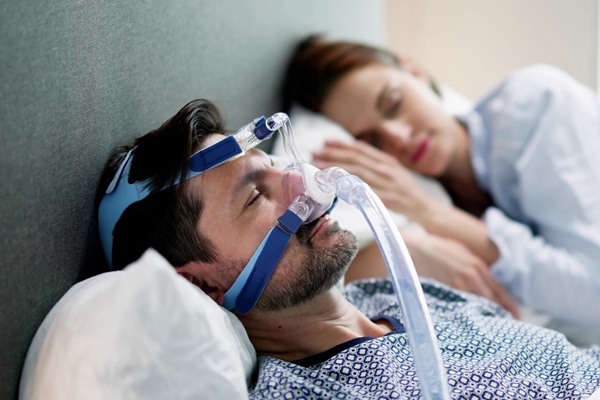A Sleep Medicine Dentist Explains How Weight Loss Can Help With Sleep Apnea

Sleep apnea is a common sleep disorder among overweight or obese people. A person with this condition often wakes up with a terrible headache and daytime tiredness. This results from pauses in breathing while sleeping and inadequate sleep. If you want to know how losing weight can help with your sleep apnea, here are explanations from a sleep medicine dentist.
What sleep apnea is
This is a condition in which the person stops breathing while asleep. This pause can last for seconds or minutes. It can affect a person’s health in a negative way. Inadequate sleep results from waking up gasping for air. This can happen several times during the night.
The person then suffers from daytime sleepiness and exhaustion. Morning headaches are also common in people with this condition because of the lack of brain oxygenation. It can also result from frequent sleep interruptions. These terrible head pains are not part of a healthy lifestyle.
Its connection to excess weight
Research shows that there is a connection between this sleep disorder and obesity. People with excess weight tend to suffer from this condition more. A thorough physical examination can determine if the overweight person is at risk or already has sleep apnea. Measurement of the neck circumference is one way to check. A neck circumference of at least 16 inches in women and 17 inches in men will increase the risk for this condition.
Its connection to weight loss
Studies show that it is possible to correct sleep apnea with weight loss in some patients. A person’s anatomy often affects this part of the treatment. Someone with prominent tonsils, a receded chin, or a deviated septum will still cause this condition to persist despite weight loss. Even so, losing weight will give anyone many health benefits. This may include the improvement of some sleep apnea symptoms.
Research proves that this sleep disorder can slow down a person’s metabolism. Inadequate sleep and improper oxygenation affect the balance of hormones in the body. This then results in a slow metabolic rate. Controlling sleep apnea can help ensure weight loss. A sleep medicine dentist can help make this happen.
How losing weight can help correct sleep apnea
A healthy weight can help improve the symptoms of this sleep disorder. Excess weight tends to form fatty layers in the tongue and neck. This obstructs the person’s breathing, especially while sleeping. Weight loss cuts down the fatty deposits in these areas. This improves the person’s breathing by increasing airway traction and lung volume. These events prevent airway collapse during sleep.
Losing a significant amount of weight can reduce irritability and daytime sleepiness. It can lower insulin resistance and blood pressure. Diet and lifestyle changes through clean living can help the person lose weight and treat sleep apnea. Some people need additional help through medication or even surgery. A dialogue between the patient and the sleep medicine dentist is ideal. It can help determine which weight loss remedy can help the patient most.
Weight loss can help improve your sleep apnea symptoms
Excess weight can cause obstructions in your upper air passages. It is a common cause of breathing pauses while you sleep. This results in many health disorders. Losing weight can help correct sleep apnea symptoms. An appointment with your sleep medicine dentist can answer more of your questions about this particular disorder.
Are you considering getting sleep apnea treatments in the Chico area? Get more information at https://chico.drelloway.com.
Check out what others are saying about our dental services on Yelp: Do I Have Sleep Apnea in Chico, CA.
Related Posts
If you are supposed to get dental implant restoration, the dentist might recommend a bone graft as a necessary procedure. This procedure is often recommended for patients who may not have enough jawbone to support the implant. This article covers details you need to know about a bone graft.If a person has lost their teeth…
IV sedation is one of the more common types of sleep dentistry. If you are nervous about IV sedation or are considering asking your dentist about it, then learning the basics is a good first step. This review offers a definition of IV sedation for sleep dentistry, when it is recommended and what the risks…
Do you need your wisdom teeth removed? Read on to learn about this common oral surgery procedure. The third set of molars, otherwise called the wisdom teeth, usually develop between 17 and 25 and are removed through oral surgery by a general dentist. Most individuals have at least one impacted wisdom tooth, which means it…
Regular visits to a general dentist are vital in maintaining healthy teeth and gums. General dentists are often primary care providers for dental health. They are specially trained to provide a wide range of services daily to prevent, diagnose, and treat oral health issues. This ensures their patients have healthy, functional, and beautiful smiles. The…

